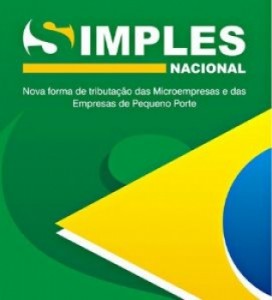 The year 2015 started with something new for at least 450 thousand Brazilian micro and small companies that could be included in Supersimples, based on the changes promoted in their taxation regime. Most of them are service activities that, in 2015, can benefit from a reduction of up to 40% in the tax burden. In addition, they will also enjoy the benefits of reducing bureaucracy resulting from the unification of eight taxes - municipal, state and federal - in a single payment slip.
The year 2015 started with something new for at least 450 thousand Brazilian micro and small companies that could be included in Supersimples, based on the changes promoted in their taxation regime. Most of them are service activities that, in 2015, can benefit from a reduction of up to 40% in the tax burden. In addition, they will also enjoy the benefits of reducing bureaucracy resulting from the unification of eight taxes - municipal, state and federal - in a single payment slip.
In interviews with the press, the Minister of the Secretariat for Micro and Small Business, Guilherme Afif Domingos, said he believed that “the regime will change the lives of many Brazilians and that micro and small entrepreneurs will have more time to produce and sell”.
Since November 1, 2014, companies have started to choose the new regime. To join Supersimples, it is necessary to be within the billing ceiling, the value of which varies from State to State and is related to the participation in the Brazilian GDP. The limit goes from R $ 1,26 million in Amapá, for example, to R $ 3,6 million in São Paulo.
For ETCO's Executive President, Evandro Guimarães, the new regime may contribute to the expansion of the formalization of small businesses in the country. “In addition to avoiding high tax burdens, micro and small people often ended up opting for informality due to the difficulties to deal with tax bureaucracy, and also with the complicated processes for starting a business. ”
According to experts, the new rules of Supersimples, which underwent 81 changes in relation to the previous project, will also promote a significant reduction in the time to open or close a company, due to the reduction of bureaucracy linked to these processes.





